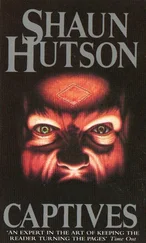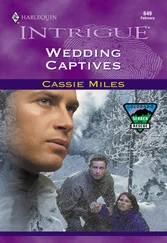Norman Manea - Captives
Здесь есть возможность читать онлайн «Norman Manea - Captives» весь текст электронной книги совершенно бесплатно (целиком полную версию без сокращений). В некоторых случаях можно слушать аудио, скачать через торрент в формате fb2 и присутствует краткое содержание. Год выпуска: 2014, Издательство: New Directions, Жанр: Современная проза, на английском языке. Описание произведения, (предисловие) а так же отзывы посетителей доступны на портале библиотеки ЛибКат.
- Название:Captives
- Автор:
- Издательство:New Directions
- Жанр:
- Год:2014
- ISBN:нет данных
- Рейтинг книги:3 / 5. Голосов: 1
-
Избранное:Добавить в избранное
- Отзывы:
-
Ваша оценка:
- 60
- 1
- 2
- 3
- 4
- 5
Captives: краткое содержание, описание и аннотация
Предлагаем к чтению аннотацию, описание, краткое содержание или предисловие (зависит от того, что написал сам автор книги «Captives»). Если вы не нашли необходимую информацию о книге — напишите в комментариях, мы постараемся отыскать её.
Captives
This is a moving account of a country shaken by communism and anti-Semitism and haunted by recent atrocities, from "a distinguished writer whose vision of totalitarianism is close to Kafka's cloudy menace, universal yet internalized" (Richard Eder,
).
Captives — читать онлайн бесплатно полную книгу (весь текст) целиком
Ниже представлен текст книги, разбитый по страницам. Система сохранения места последней прочитанной страницы, позволяет с удобством читать онлайн бесплатно книгу «Captives», без необходимости каждый раз заново искать на чём Вы остановились. Поставьте закладку, и сможете в любой момент перейти на страницу, на которой закончили чтение.
Интервал:
Закладка:
Anyhow, she begged me to stop by her place. She needed to participate in a school assembly, and wanted to make a tape recording — on a certain borrowed machine — of a story of hers that would be broadcast that evening on the “Goodnight, Kids” show through the intervention of one of her former colleagues, a certain Tiberiu Covalschi, who was also a former teacher (with the rank of professor), former principal, and former jailbird. I’d given up trying to tell her that her messes were a complete embarrassment — especially at her age: in the past, she’d begin to cry, declare that she was sick and alone and that her old mother was mad and far away. In the end, I just shrugged my shoulders.
Once, when she had infuriated me, I shouted at her that if she’d chosen the way of “amour,” it should have been her duty to learn something about men and couples, from her countless humiliations, as well as the related strategies for coupling and manipulation. She had a fit of hysteria right away. It horrified and disarmed me. Out of fury, I yelled that she was fat and ugly — but then I saw her as if for the first time: an ordinary woman, neither ugly nor beautiful, completely average. It might have been a good bet to say that she would have done better as a regular housewife with several sniveling kids tugging at her skirts. She had lively eyes, a pleasant face, and a relatively well-made, navy-blue dress with a little white collar. At that moment, I understood that everything I knew about her had kept me from actually seeing her.
My surprise was even greater when, after she had calmed down, she said: “don’t you realize, my vitality can only be tempered by the multiplication of defeats? Tiredness, misery, tears! Happiness would amount to nothing for a person like me. You need much more strength for the role of the unhappy woman.” The surprises didn’t stop there. I spotted her on a busy street several days later. She was creeping past the passersby in a state of total negligence, hair in disarray, great crocodile tears flowing down her fat, childish cheeks — dirty streams of continuous tears.
In any event, I didn’t promise that I’d make the recording, but our discussion. . her entreaty had made revulsion rise in my throat, and just like that, suddenly, I opened Donca’s letter. She had run away to the mountains three months ago, following a certain forestry engineer, Dan Vasilescu. I’d had the misfortune of seeing the conqueror at the dance party my sister had dragged me to.
The letter was full of exclamation marks and ellipses. Amid so much blank space I recognized a few words that might have been the professor’s: “The cigarette butts remain in the ashtray on the table. The other ashtray is still on the bed. Both remind us that we exist: the madness of our merging is not just a dream.” She thought I was the only one who would understand her. She told me how the engineer called her Dona and carried her around the room in his arms, beseeching her: Dona, Dona, Dona. She even signed the letter with this borrowed name.
Workroom noises broke over me in waves. Staggered upstairs to the boss’s office. This former classmate was an amiable guy. Though very young, he’d worked seriously and advanced rapidly. He’d claimed an enviable position for himself. As on other occasions, he seemed to understand what was happening to me. Left the building, wandered the streets, and stopped off at the professor’s.
The key was under the mat, as she’d said. Hadn’t ever seen her place in such a state of filth and disorder. A little pigsty, suffocated by too many things, all mixed together. Found all kinds of books and letters. I even received a visit from a pretender to the resident’s hand whom she’d fished out of the personals. After several hours, I had become part of the chaos of rags and words, destined, it seemed, to remain there forever, to communicate with the dust — the stinking leftovers of the cell. I understood then that I’d kill her. The thought wasn’t completely new. I knew (and in moments of discouragement had often repeated to myself) that I had no right to judge her, that I was, in fact, a kind of “brother” — panting in the sludge of subterranean caves, humbled, silenced, accomplices. We had no right to judge people like ourselves. Our common apathy and sleep wore so many faces, and her falsifying, false agitation was just one side of our complex figure — and who knows how much more wretched it was? So now I felt a need to kill her at any cost — as if I could destroy our collective culpabilities, our compromises and degradation: the dysfunction or dementia of soiled, abased, betrayed good intentions. I would poison, strangle, or shoot her with the sounds trickling from the tape recorder, and I would commit suicide myself, accompanied by Summertime from a black woman’s thick throat.
The doctors took this shock most seriously. I hadn’t killed her. Instead, I’d gone quietly out of her room before she returned. . I climbed down the twisted, narrow stairs and wandered the streets till late. It’s true that I was missing from the office and from home for a while, but that can happen to anyone. It didn’t seem important to me that I would sometimes bring my hand hurriedly to my throat. It was an inoffensive tic, in fact, and they helped me get rid of it quickly. The investigators (the doctors and others) asked me how the movie theater was and if there were really so many apples down by the seashore. Of course Death isn’t waiting. Give Death a kiss from me , I told the Sisters of Charity, she rocked me so many times. . Look, she leans heavily on my shoulder. She shook my hand till my fingers cracked, and then smiled at me. It was for the best, I knew, that I now remained alone. In the course of things, they asked me why I’m always cold. How do I explain the cold, this perpetual chill? Why should it seem that when my workmate laughs he’ll freeze in place, showing his teeth? Why do I feel fear and cold in crowds, when the agitation produces heat? Of course, friction should produce heat — where in hell does all this cold come from? Continuous damp cold — where the devil. . Poor inquisitors and guards, they asked me many things, but kept returning to this: Why does everything look frozen to me — hands, hair, lips, all ready to snap off with cold and all around, cold, sleep, and inescapable frost. In the end, they took a letter out of a drawer. No, it wasn’t from Donca. They showed me the envelope. I recognized it. I knew that letter by heart. They had found it in the coat I’d surrendered when I entered the hospital. It was from the professor, Liliana Zubcu, the Captain’s wife. “Mr. Engineer, I am the mother of the girl you ruined. .” That’s how indiscreetly — no, no, indignantly — the letter began. “Her pure soul cannot endure this violation. After the death of her father, she placed her trust in you, a guardian angel, she believed.” I listened to the doctors’ indig. . no, indiscreet reading, and hadn’t the strength to protest against this invasion of my coat’s lining. “How could you do such a thing? Do you know what it means to rip out a girl’s unborn fetus? Do you know what happened to her body and soul? And the danger? The abortion is now followed by prison, but she told you nothing, nothing. She took the risk completely alone. You didn’t love my daughter enough, and you will never be free of this guilt!” Mrs. Liliana Zubcu was right: I didn’t love that sublime sister enough. I cannot love enough, it’s true. The guilt she’s talking about is real: I carry the burden in myself. I didn’t want to answer any of the doctors’ questions about the letter. It’s not their business to get into my coat’s lining. Eventually they accepted my silence and told me to get some rest.
The hospital authorities maintained that there was a way out. I should change environments, get out of the house, go out for walks, chose another place to work — outside, in the fresh air. I should be patient, very patient. In any case, I should not stay in one place for too long, nor is there any reason. .
Читать дальшеИнтервал:
Закладка:
Похожие книги на «Captives»
Представляем Вашему вниманию похожие книги на «Captives» списком для выбора. Мы отобрали схожую по названию и смыслу литературу в надежде предоставить читателям больше вариантов отыскать новые, интересные, ещё непрочитанные произведения.
Обсуждение, отзывы о книге «Captives» и просто собственные мнения читателей. Оставьте ваши комментарии, напишите, что Вы думаете о произведении, его смысле или главных героях. Укажите что конкретно понравилось, а что нет, и почему Вы так считаете.












